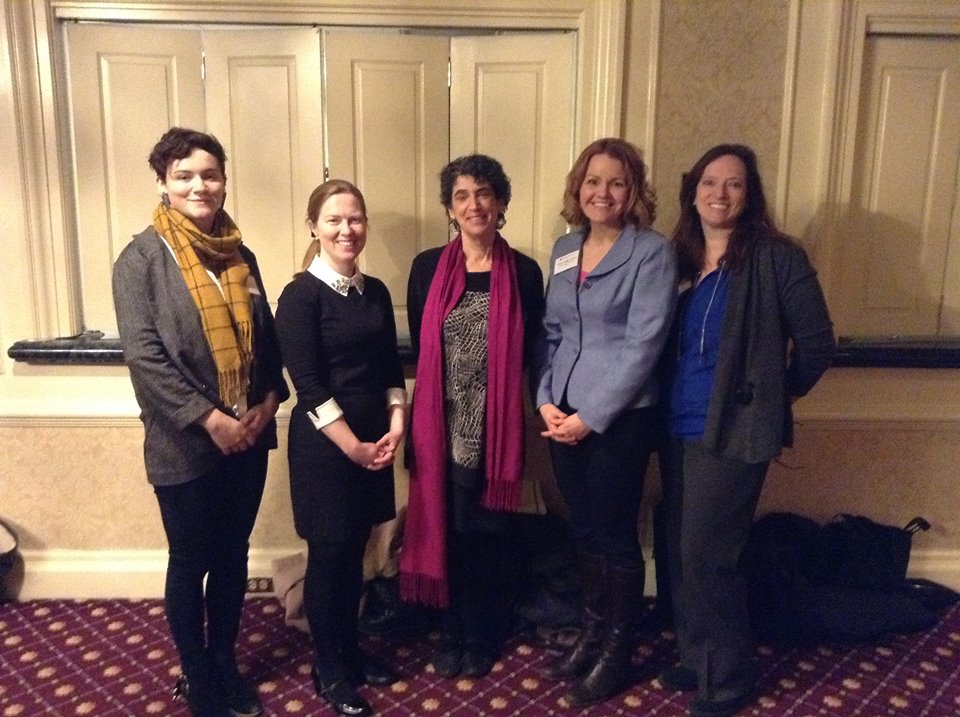Relationship and sexuality education

From left to right: Katie Gillespie (PhD student) Prof Maria Lohan; Prof Debra Moser, Mailman School of Public Health Columbia University ; Dr Liberty Barnes, Cambridge University and Dr Laura D. Lindberg, Principal Research Scientist, Guttmacher Institute, New York.
|
Project Title |
What young men need in relationship and sexuality education: evaluations of a targeted intervention |
|
Research Focus: |
Maternal and Child Health |
|
Funder & Dates |
Health Services Executive of Ireland |
|
Principal Investigator or Primary Supervisor (if PhD project) |
Professor Maria Lohan |
|
Co-Investigators or additional supervisors |
Dr Carmel kelly & Dr Áine Aventin |
|
Research Fellow(s) or PhD Student |
Ms Kathryn Gillespie |
|
Name & Institution of Collaborators |
Professor Abbey Hyde, University College Dublin |
|
Name of External Partner Organisations |
Health Services Executive of Ireland (Crisis Pregnancy Agency ) |
|
Description of Project: Aim; Methods; Expected Outcomes (up to 300 words) |
Aims: To explore perceptions of the acceptability for teenage men of IIWJ, and to explore perceptions of RSE needs and preferences of teenage men more widely, among teenage men, teenage women, teachers, and parents. Methods: Focus groups with pupils (male and female, aged 16-17), individual interviews with RSE teachers, and focus groups and paired interviews with parents in six schools across Ireland. Eligible schools were all mainstream schools in Ireland that had a transition year group at the time of the study. Recordings were transcribed verbatim and thematically analysed. Results: 37 young men, 26 young women, seven teachers, and 11 parents participated. Perceived strengths of IIWJ included its focus on the male perspective and use of digital media and engaging exercises which promoted individual thought. Perceived weaknesses included issues with IVD relatability and some problematic exercises. The majority of participants perceived the programme to have the potential to be effective in encouraging teenage men to think about issues they had never considered before, and about their own roles and responsibilities. Individual educator characteristics were more important than professional background. Engaging methods which provided information up front, used humour, and which did not put pressure on individuals, were popular. Inclusion of content from the male perspective which acknowledged young people’s wider experiences was important. Conclusions: IIWJ is acceptable and appropriate for continued use in schools, but should be updated. Additionally, it served as an invaluable research tool and springboard for discussion, providing foundations for exploring insights into what all RSE programmes for young men might seek to emulate. Educators and intervention developers should reject the side-lining of young men in RSE, and recognise and accommodate their needs and preferences as differing to those of young women |
